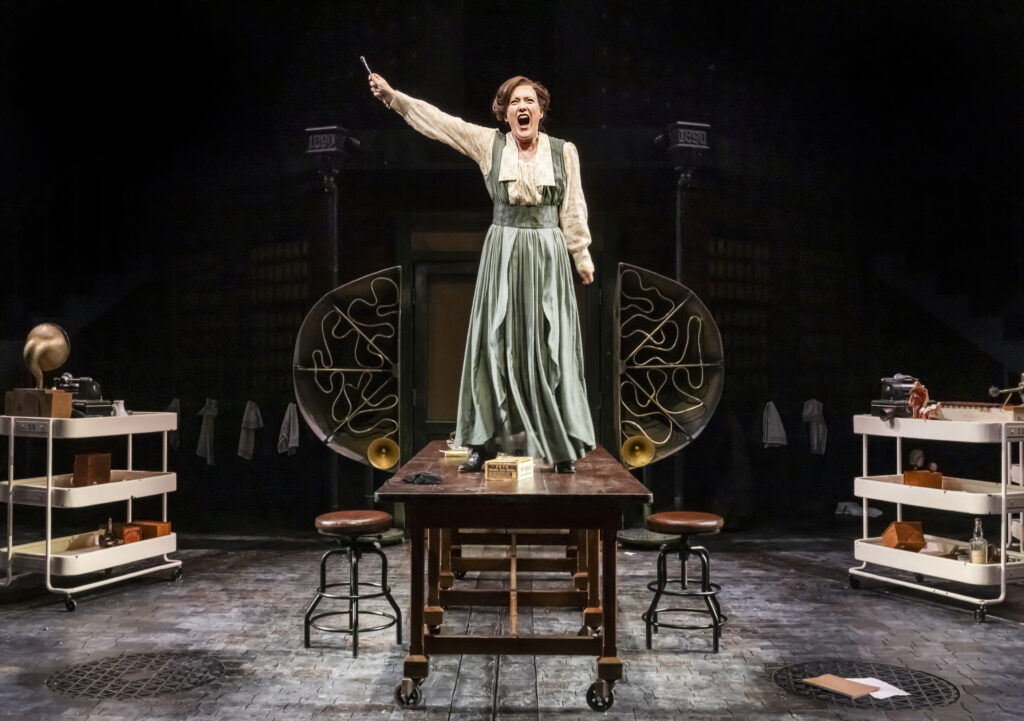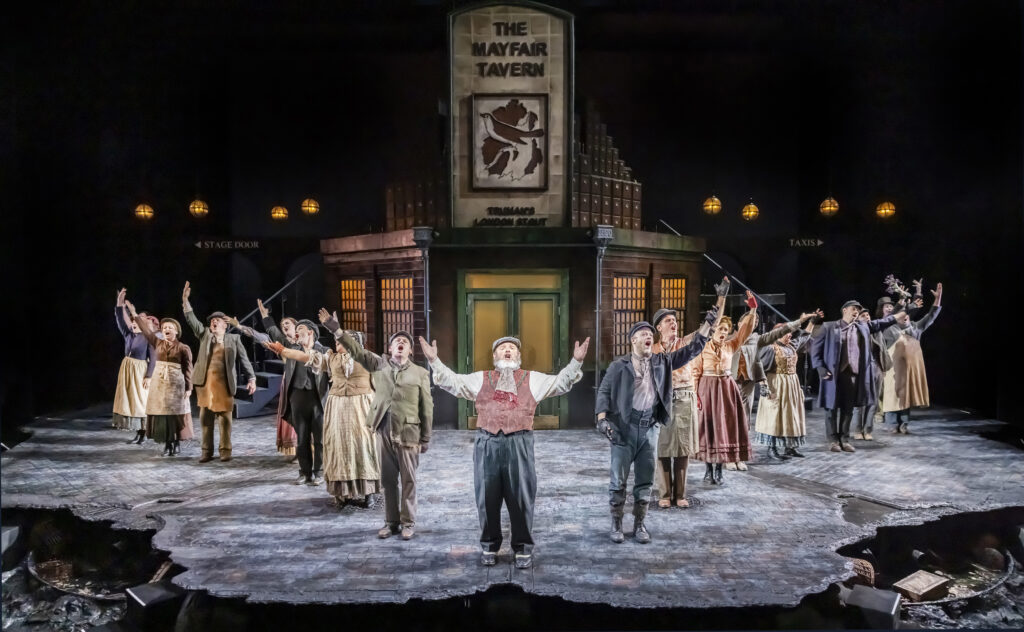
Following their hit Christmas production of Oliver!, Leeds Playhouse has returned with another classic musical, this time pairing with Opera North for a co-production of Lerner and Loewe’s My Fair Lady. It’s directed by James Brining, who also took the helm of the two companies’ last co-production, Stephen Sondheim’s A Little Night Music in 2022.
Eliza Doolittle (Katie Bird), a Cockney flower girl in Covent Garden, is taken in by phonetician Henry Higgins (John Hopkins) who attempts to train her to pass as lady as part of a bet with fellow linguist Colonel Pickering (Dean Robinson). It plays out on Madeleine Boyd’s wonderful period set and the Ascot scene is a highlight thanks to an inventive backdrop – think, traditional seaside face in hole boards but it’s at the races.

The challenge with My Fair Lady is how well the 1956 musical, based on the 1938 film of the same name – itself adapted from George Bernard Shaw’s more forward-looking play Pygmalion – translates to more modern times. The question arises: is it sexist, misogynistic and classist or is it a play about sexism, misogyny and classism?
Brining seeks to shape the musical so that the clear answer is that the play is a critique of the period. Here, the women have more agency and, like the recent West End revival by Bartlett Sher at London Collosiuem, Brining uses the musical’s ambiguous ending to reclaim, or at least re-state, Eliza’s power.
Harder to reclaim is the problematic portrayal of class. At its core, the moral of My Fair Lady is that it is better to be upper or middle class than lower. OK, that isn’t strictly true – Alfred Doolittle is happier when poor than rich, but it’s unlikely Henry would consider him anything above the lower class despite his newfound fortune. Though it’s possible to argue that it is Henry who holds the classism and that the musical is a commentary on him and the society that bred him, there seems to be little to upset the notion of the ‘lower-class bad, upper-class good’ motto.

In contrast to the standard take on the character, Bird’s Eliza starts out strong-willed and only grows from there – yet even she is fixated on the notion of bettering herself, even if she realises that she will never truly reach the society status she initially sought out. Bird’s background as an opera singer is immediately clear in her opening number, Wouldn’t It Be Loverly? – but it is almost too good as Bird’s cockney accent somewhat disintegrates as her natural operatic sensibilities kick in.
Her style works better once Eliza has cracked the upper-class speech patterns, and, though The Rain in Spain has a slightly cartoonish delivery, I Could Have Danced All Night is worth the admission alone and you regret there aren’t more of Eliza’s musical numbers in the second act. Like Bird, Hopkins takes a slightly different approach to Higgins – less brutish, more flailing. Without operatic training, his voice is more at home in the musical style, if not as striking as Bird. It’s these performances that lift the musical and, like Eliza, Brining’s production passes the test.














